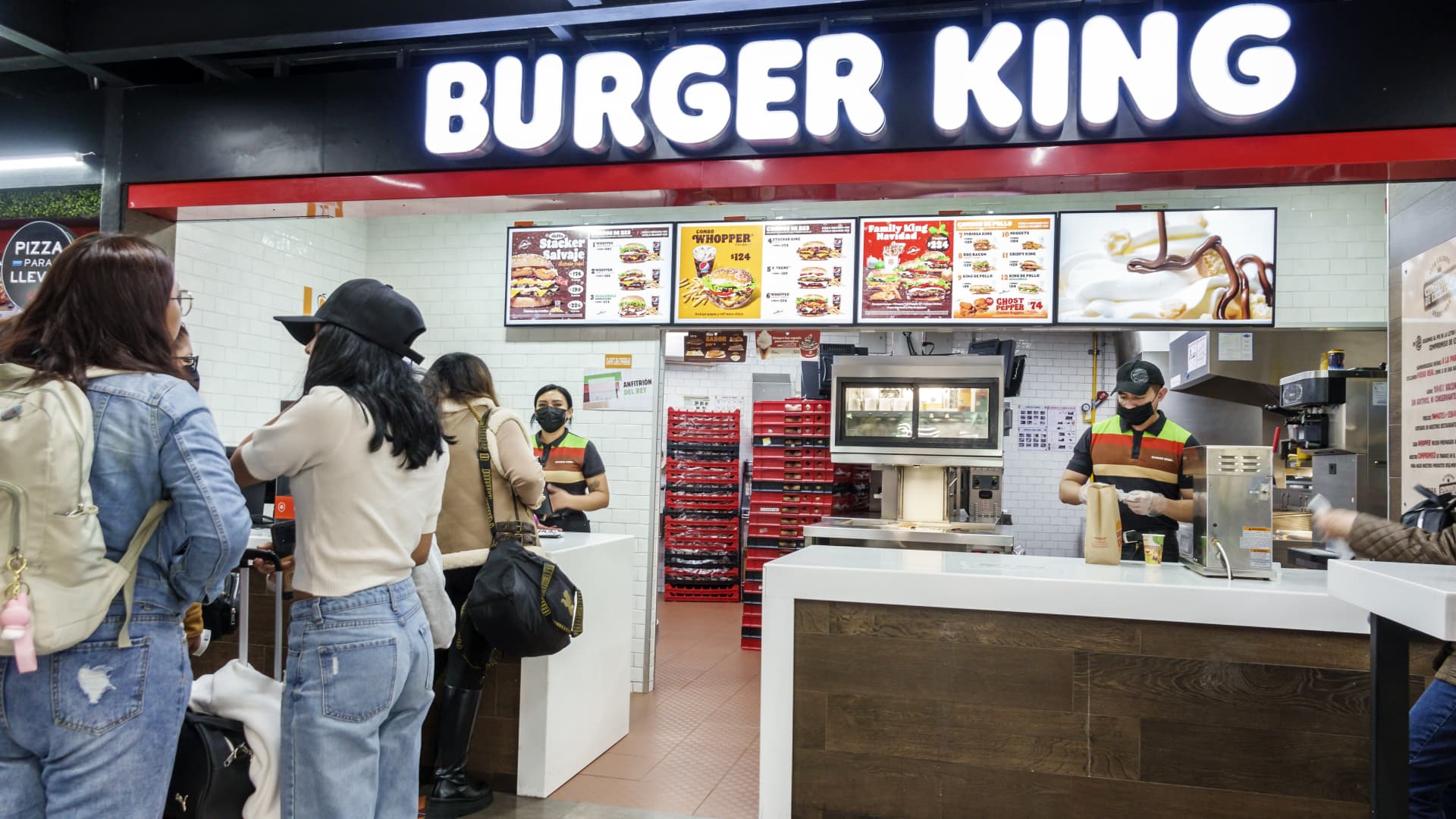
Burger King fast food restaurant with menu and customers.
Jeff Greenberg | Universal Images Group | Getty Images
Restaurant Brands International is buying Carrols Restaurant Group, the largest Burger King franchisee in the U.S., for about $1 billion in cash.
Restaurant Brands will pay $9.55 per share to acquire Carrols, which operates more than 1,000 Burger King restaurants and 60 Popeyes locations. Carrols’ stock closed at $8.42 on Friday, giving it a market value of $459 million. The company’s shares jumped more than 12% in premarket trading Tuesday.
The deal is expected to be completed by the second quarter of 2024.
The acquisition, announced Tuesday, is a shift in strategy for Burger King. Its restaurants have been almost entirely franchised for the last decade, and the company currently only has 75 corporate-owned locations.
It comes more than a year after Restaurant Brands unveiled a $400 million plan to revive Burger King’s U.S. business. Burger King sales had been lagging behind the competition, and Wendy’s overtook it as the second-largest burger chain by U.S. sales. The comeback strategy focuses on investing in restaurant remodels and advertising to drive demand and boost franchisee profits.
Restaurant Brands plans to remodel 600 of Carrols’ Burger King locations rapidly over the next five years and then sell them back to franchisees, Tom Curtis, president of Burger King U.S. and Canada, said in a statement. The company will invest about $500 million, funded by Carrols’ operating cash flow, to pay for the renovations.
“This will allow us to really focus our attention on accelerating remodels and being thoughtful about how to refranchise this restaurant network into smaller packages, with new and existing franchisees who live close to the communities where they own the restaurants,” Restaurant Brands CEO Josh Kobza told investors on a conference call on Tuesday.
After selling off the majority of Carrols’ locations in five to seven years, Burger King plans to hold onto a couple hundred restaurants for “strategic innovation, training, and operator development purposes.”
Earlier this month, Carrols preannounced its fourth-quarter results, sharing that same-store sales for its Burger King locations rose 7.2%, while traffic increased 2.9%. The franchisee typically outperforms the rest of Burger King’s U.S. system.
Don’t miss these stories from CNBC PRO:







